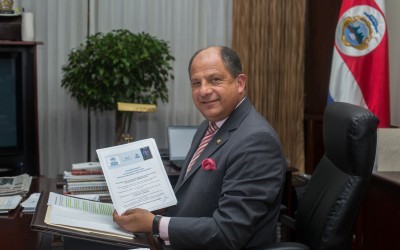Stateless children are born into a world in which they will face a lifetime of discrimination; their status profoundly affects their ability to learn and grow, and to fulfil their ambitions and dreams for the future.
With a stateless child being born somewhere in the world at least every 10 minutes, this is a problem that is growing. In countries hosting the 20 largest stateless populations, at least 70,000 stateless children are born each year.
The effects of being born stateless are severe. In more than 30 countries, children need nationality documentation to receive medical care. In at least 20 countries, stateless children cannot be legally vaccinated.
This year UNHCR spoke to children and young people from 7 different countries. Many of the children and young people had never spoken to anyone about what it was like to be stateless. They told us that that being stateless had taken a serious psychological toll, describing themselves as “invisible,” “alien,” living in a shadow,” like a street dog” and “worthless.”
STATELESS STORIES
Statelessness can hold young people back for the rest of their lives.
Kavita, 22, was born and raised in Malaysia and wants to be an art teacher. She has been offered jobs at schools but cannot take them because she is stateless and has to work in a local shop. She lacks nationality because her father passed away and her mother left when she was young.
For some being stateless leaves them open to abuse.
Clémentine, 22, from Côte d’Ivoire did not have her birth registered and became stateless as a result. Her father disappeared and her mother died meaning that at the age of 6 she was sent to live with her aunt. Growing up she was forced to work in her Aunt’s restaurant and was verbally and sexually abused.
There are an estimated 700,000 stateless people in Côte d’Ivoire.
SOLUTIONS
I am here, I belong
The strongest message to emerge from the consultations with the children and youth was their sense of identification with the countries in which they had been born and had lived all their lives.
In almost all cases the best solution to statelessness is to turn a child’s existing links with his or her country of birth and upbringing into the legal bond of nationality. It is vital that this be achieved as early as possible so that no child grows up with the indignities and harm caused by statelessness.
The prevention and resolution of childhood statelessness is one of the key goals of UNHCR’s Campaign to End Statelessness in 10 Years, or by 2024. To achieve this goal, UNHCR urges all States to take the following steps in line with the Global Action Plan to End Statelessness:
- Allow children to gain the nationality of the country in which they are born if they would otherwise be stateless.
- Reform laws that prevent mothers from passing their nationality to their children on an equal basis as fathers.
- Eliminate laws and practices that deny children nationality because of their ethnicity, race or religion.
- Ensure universal birth registration to prevent statelessness.



